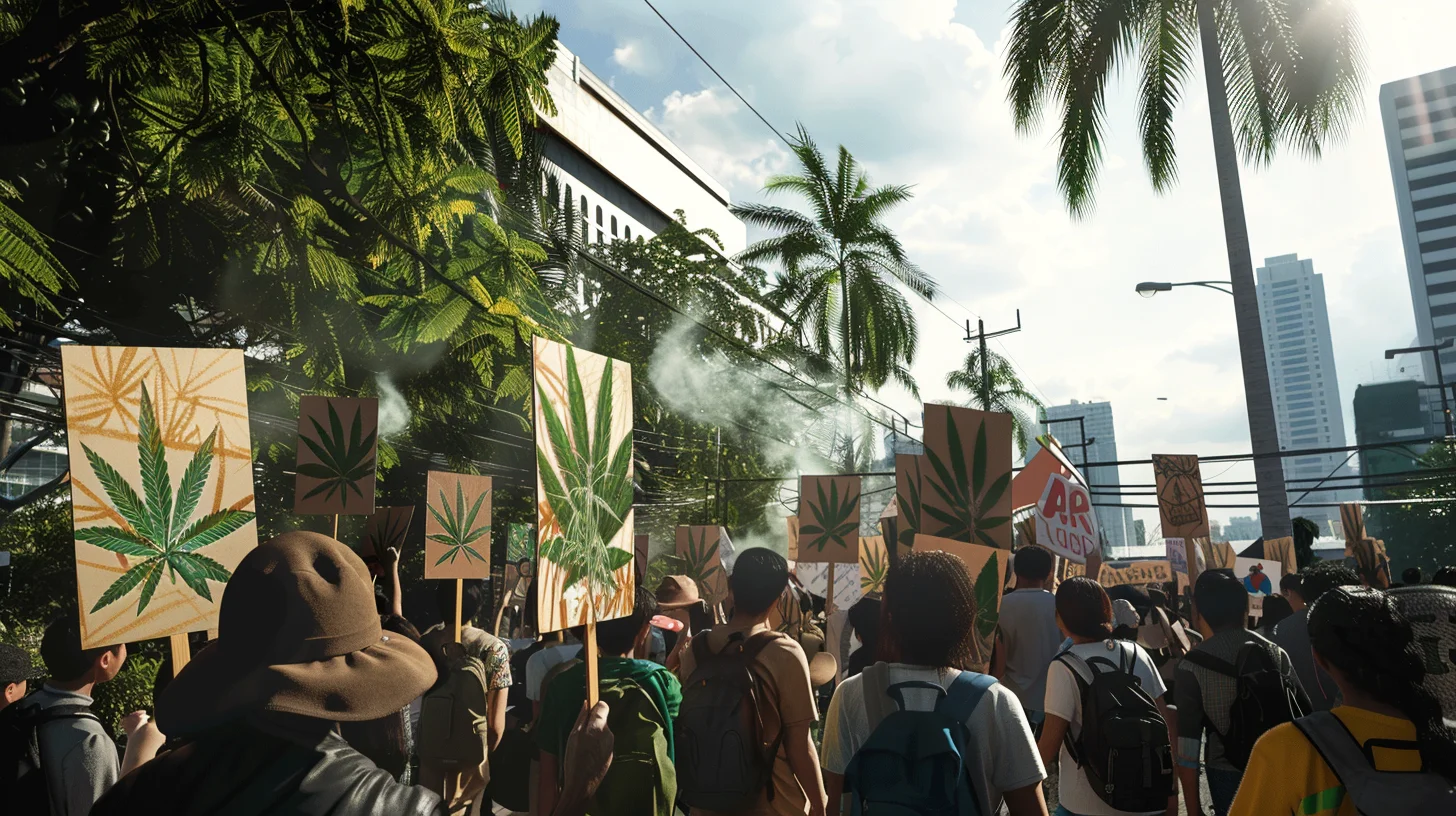- Why It Matters: The cannabis network’s confrontation with the Justice Minister highlights the ongoing debate over cannabis policy in Thailand, emphasizing the need for clear, evidence-based regulations.
- The Big Picture: This event reflects broader issues within Thai society regarding drug policy, particularly the contrasting treatment of cannabis compared to substances like methamphetamine and alcohol.
- Driving The News: The cannabis network’s ultimatum to the Justice Minister underscores the growing demand for transparency and fairness in drug legislation.
BANGKOK, THAILAND – Members of Thailand’s cannabis network have taken their grievances to the Ministry of Justice, demanding answers from Justice Minister TAWEE Sodsong on the government’s seemingly contradictory stance on cannabis compared to other substances like methamphetamine and alcohol. Led by PRASITCHAI Nunual, the network’s secretary-general, the group has given the minister a seven-day deadline to clarify his position.
The network’s primary contention lies in the perceived double standards in drug policy enforcement and legislation. They question why the government maintains a harsh stance on cannabis while allowing the free sale and consumption of methamphetamine (within a five-pill limit) and alcohol, especially given the significant health and social issues associated with these substances.
During their confrontation on March 6, the activists presented four critical questions to Minister TAWEE, probing the rationale behind the push to reclassify cannabis as a narcotic, despite its widespread use for medical and therapeutic purposes by many, including the Muslim community in Thailand’s southern provinces. They argue that this move overlooks the potential benefits of cannabis, particularly for those unable to afford conventional treatments for serious illnesses.
The activists are not only challenging the minister’s stance but also the broader implications of current drug policies on Thai society. They highlight the inconsistency in addressing the real issues of drug abuse and addiction, pointing out the adverse effects of such policies on the population’s well-being.
As the deadline approaches, the cannabis network vows to intensify their efforts, promising to seek answers every three days if their demands are not met. This confrontation marks a significant moment in Thailand’s cannabis debate, signaling a push for more rational, evidence-based drug policies that consider the nuanced impacts of cannabis compared to other more harmful substances.
